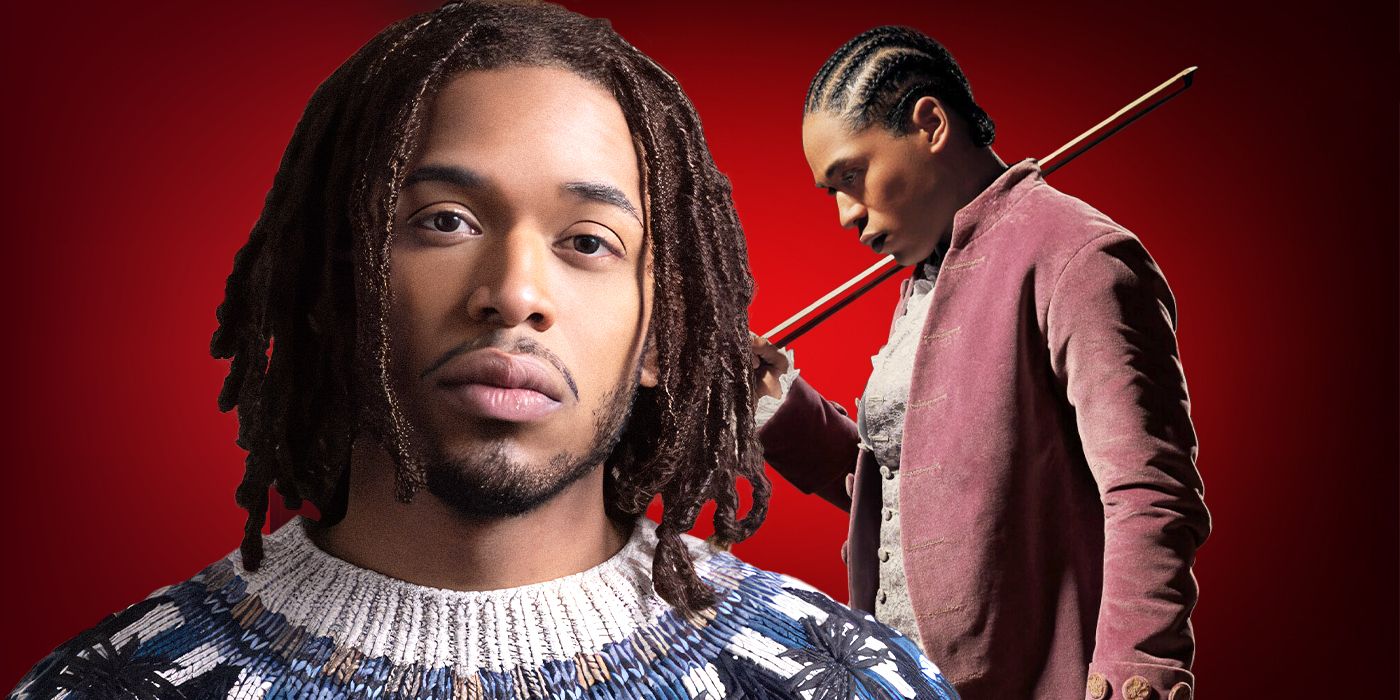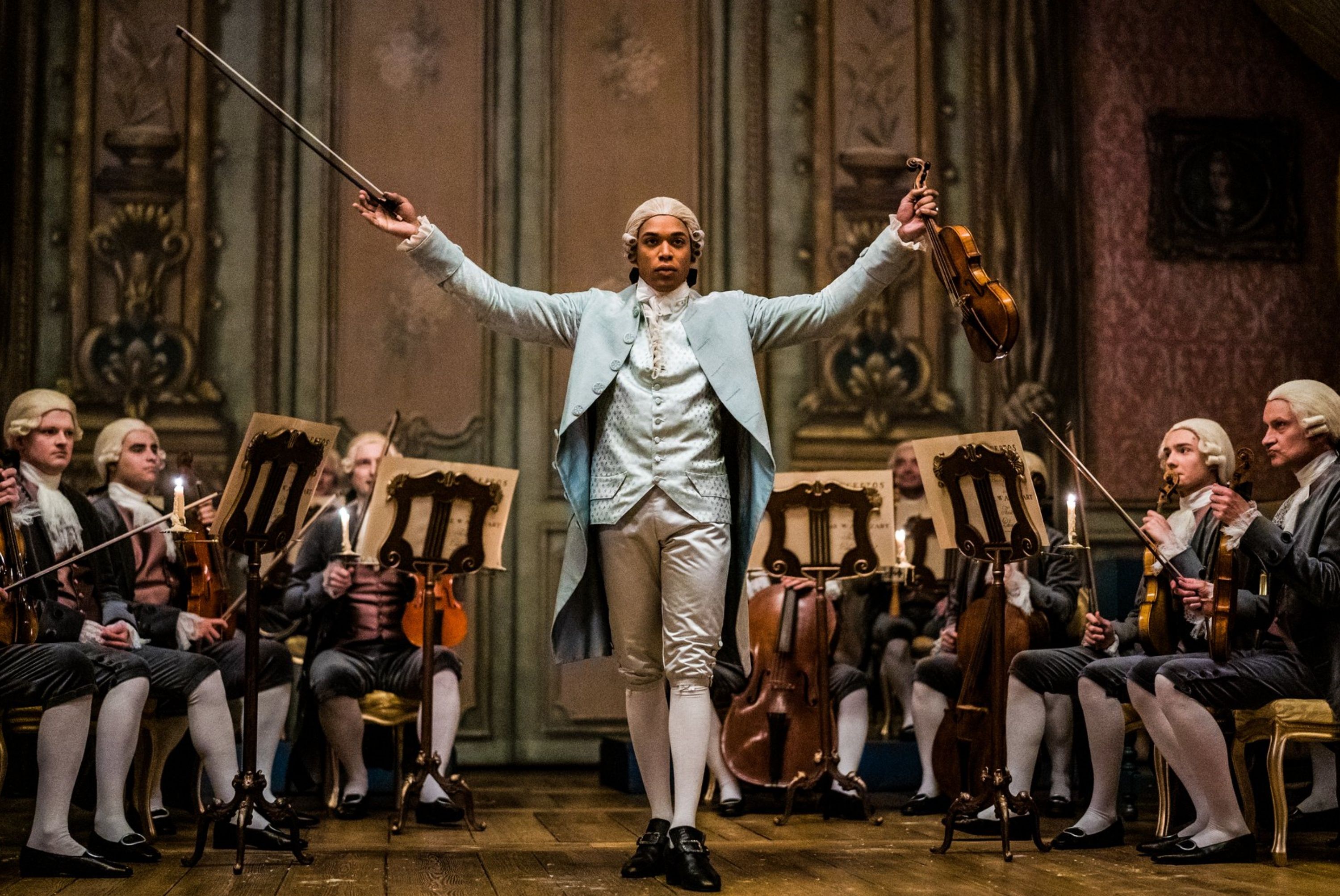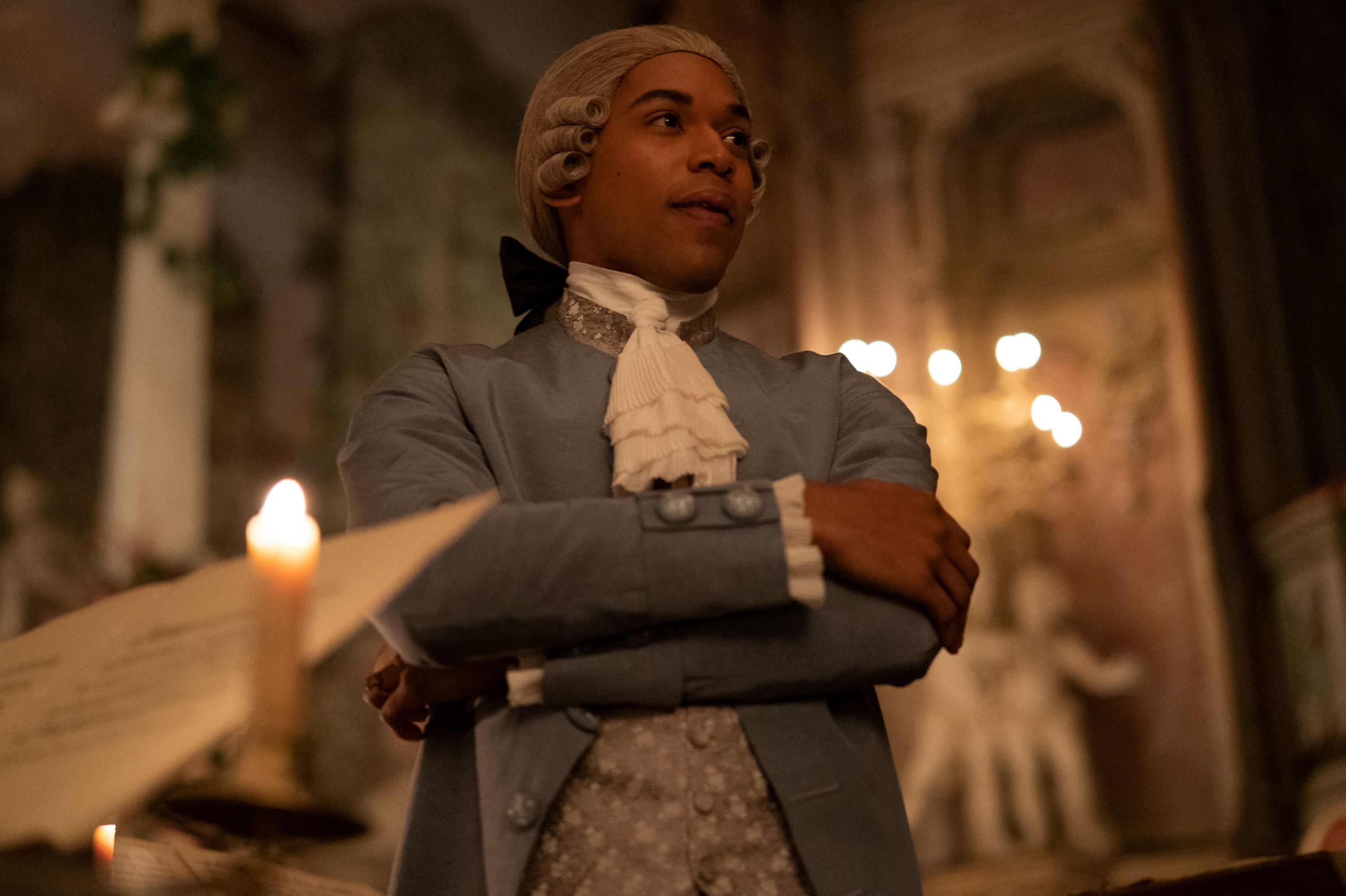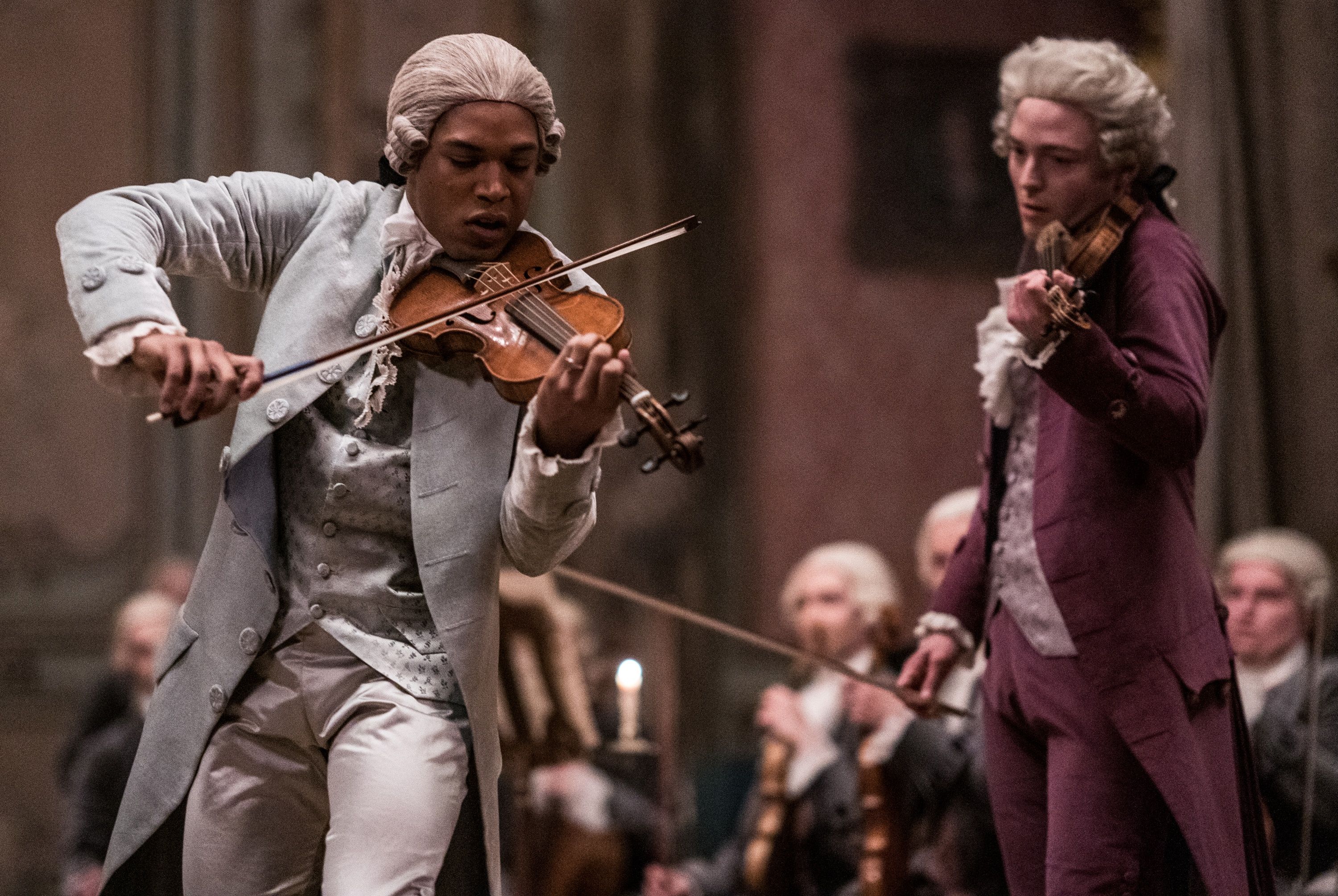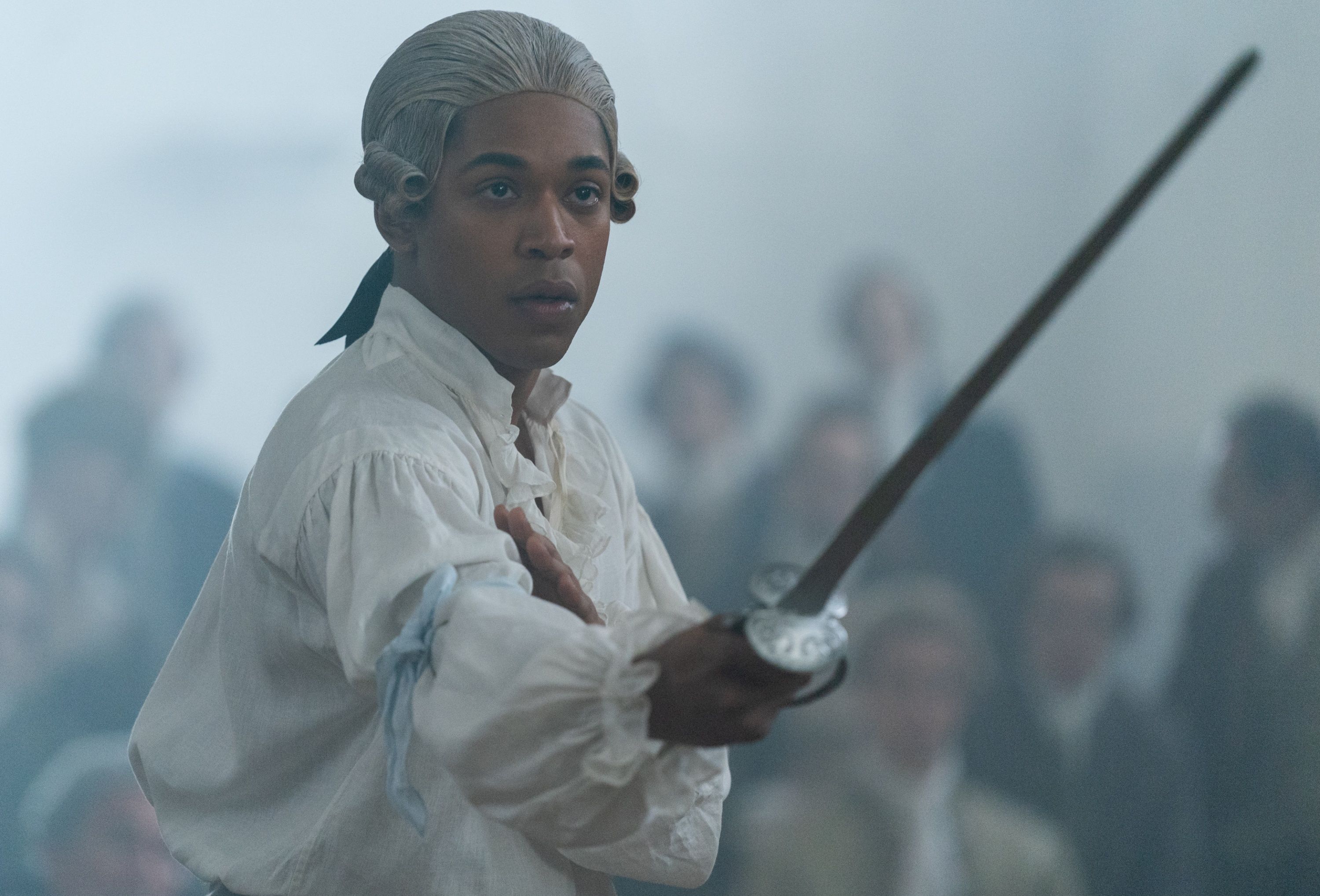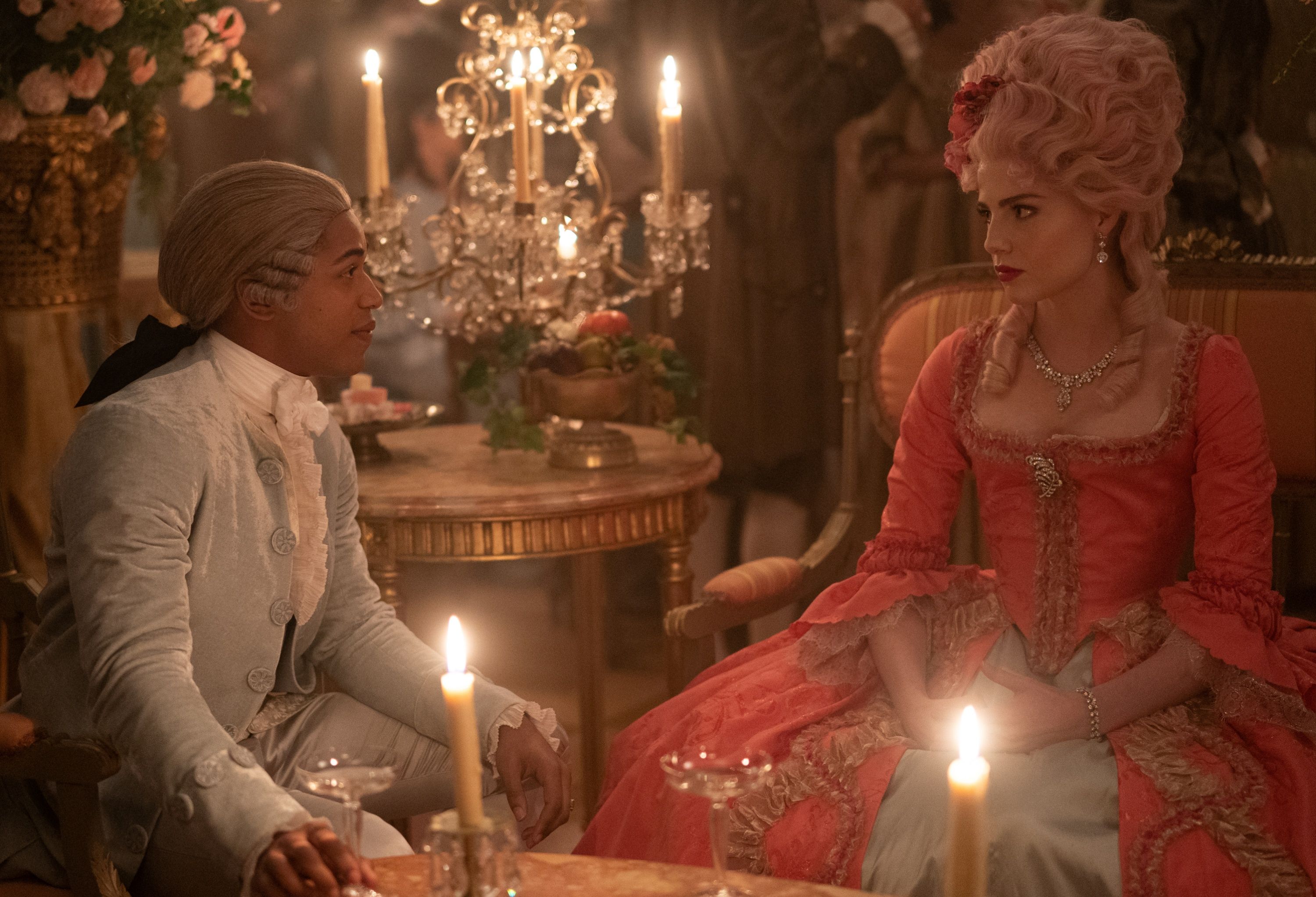From director Stephen Williams and inspired by a true story, Chevalier shines the spotlight on the previously forgotten life and talent of 18th century composer Joseph Bologne (embodied to the fullest by Kelvin Harrison Jr.), Chevalier de Saint-Georges. Defiant in a world that expected obedience and driven to be himself at a time when that was truly dangerous, the virtuoso violinist and champion swordsman kept company with Marie Antoinette (Lucy Boynton) until he fell out of the court’s fickle favor and was forced to fight against the aristocracy that had previously lifted him up.
During this interview with Collider, Harrison talked about the recent list of music-related projects he’s been doing, what fascinated him about Joseph’s story, hoping he did enough to honor him in the way that he deserves, what he did to get ready for the production, his previous history with the violin and with fencing, how the wardrobe informed the character, the impact of shooting the final performance, and never knowing what will come next.
Collider: I’ve spoken to you for The High Note. I’ve spoken to you for Cyrano. We didn’t speak for Elvis, but that again was music related. Does this reach the top of the mountain for music-related movies for you? How did all of this even happen?
KELVIN HARRISON JR.: I don’t know. But when I was a kid and I told him I wasn’t gonna play music anymore, my dad was like, “I promise you, you will. You’re never getting away from it.” It’s at my core. It’s cool.
Are you surprised that you’ve found so many music-related projects that are so completely different from each other?
HARRISON: Yeah. I actually think it’s really exciting because, growing up, I was exposed to so many different types of music. My dad was a classical music teacher growing up, so that was something I got to see a lot with students coming by. We obviously played a lot of jazz. I played piano in the church, so I was playing a lot of gospel music. Because I grew up in the 2000s, I was listening to pop music, so that’s where my interest in pop music came from. I’ve gotten to touch everything that felt like it was an influence when I was growing up.
Is there a musical artist that you would still want to play, if the script came your way?
HARRISON: Oh, man. Someone said, “You should play [Jimi] Hendrix.” And I was like, “I don’t know,” but that would be really fun. I would actually love to play Prince. I just don’t think I’d do another biopic again. If it were in the right timeline, I would have probably done something like that. That would have been fun. But, no.
When this project came your way, what was your reaction to the script and the story and who this man is? I know you’ve said that you had no clue who he was, so what was it like to learn about him in that way?
HARRISON: Oh, man, it was intense. It’s so far from American history, in so many ways. They had a lot of similarities, but at the same time, it’s fascinating, the things that they were really focused on, at the time. When you’re studying Joseph, is a product of French society in the 1700s, Louis XVI and Marie Antoinette, and that luxurious and decadent flamboyance. That was fascinating to me.
Watching this was interesting because, while I was enthralled by the story and your performance, I was sucked in from beginning to end, and I was emotionally moved by everything, I didn’t actually start to cry until the end. Learning about how he was essentially wiped out from history really impacted me, after watching his story. What did it mean to you to get to play Joseph Bologne, Chevalier de Saint-Georges, who made such a mark in his time, even though he was then forgotten for a long time? Is there a pressure that puts on you, knowing that you are going to be introducing this historical figure to so many people?
HARRISON: When I look at it now, I think about it from a perspective of hoping that I did enough to honor him in the way that he deserves to be honored. When I was making it, as soon as you accept the job, the idea of how larger than life he is, I had to leave behind because I have to execute. And in order to execute, all I could focus on was the man and, and what the man struggling with hurting, what made him smile, what made him curious, and just the everyday things that we all experience because that’s how he saw himself. That was where I was at then.
Where did you start in your preparation for this, and when did you actually feel ready? Did you ever? Do you actually have to feel ready when you’re doing something like this?
HARRISON: That’s a good point. I never really felt ready. There was a time, at the end, where I was like, “Okay, I’ve got this.” Around the Mozart battles, I was like, “Okay, I’ve really put in the work. I’ve put in the time. I’ve thought about everything. I’ve rehearsed and rehearsed and rehearsed. I can show up and do this today.” But then, there’s always that part of you where you’re anxious and you get stage fright. You get on stage and you’re like, “Okay, now all these people are gonna sit down and they’re counting on me. Joseph is counting on me.” And you take a deep breath and go, “Well, this is what I got. Here we go.” I leave it there.
Filming starts whether you feel ready or not, so there’s a point where you have to just walk out and do it.
HARRISON: Yeah, it’s more of a mental thing. Am I mentally ready to go for it, rather than, am I actually physically prepared for it? Physically, I was obviously ready. Mentally, I was just anxious.
Is it true that you actually already knew how to play the violin?
HARRISON: I played when I was seven. That was my first instrument, ever. I played for a little bit, and then I stopped after Hurricane Katrina because the program I was in was gone. And then, I started playing piano and trumpet. So, it was a very pretty minute before I ever touched the violin again, until this movie.
It just seems like such an incredibly difficult instrument. Was there any muscle memory involved, when you were trying to do it again?
HARRISON: It felt familiar, but the biggest challenge of it all was the way Joseph plays. It’s the style of Joseph’s playing. If you play simple tunes, you can immediately jump into that. That wasn’t that hard. It’s more so the virtuosic element, with him doing these large shifts on the fingerboard, and how he’s ripping through the thing, and where the grit and the bite is, and trying to make sure you get that with a level of precision. Otherwise, the violin sounds like nothing. That was the biggest challenge.
What do you think it was about him that made Joseph so focused and so driven? For someone like him, in this time period, it wasn’t just about failure, but it was also about possible death, if he did something wrong. What do you think made him so driven and focused?HARRISON: I think it was the emptiness in him that was longing for a love. When you’re stripped away from your mother at a young age, and then you find out that your father’s passed away, it’s really challenging for a young person, especially when you also look other and people are treating you as other, and you are celebrated only because of this one gift that you have. You are looking for a community, you’re looking for love, you’re looking for a sense of belonging, and I think that drives any individual, if they’re fighting to get to that. It’s like The Notebook. These people wanna do crazy things for love. Joseph did it in a completely different way, but it was ultimately to get back to a self-love that he never got.
Along with playing the violin, you also fence in this. Did you know anything about fencing? What was that like to do?
HARRISON: I actually started training during the pandemic because (director) Joe [Wright] wanted to do a little bit of fencing in Cyrano, but then the scenes got cut, so you never got to actually see it. So, it wasn’t completely unfamiliar. When I got to this, it was different because it was a little bit more traditional, in the style of France, and then had Joseph’s style, as well. It took a little bit of time, but it wasn’t too hard.
Another thing added to your work in this is the wardrobe. How did you feel about the wardrobe? How did that influence you, with the clothing and the wig, and then also adding the style of speech?
HARRISON: It just makes you feel a little bit more regal and royal and sophisticated when you put the clothes on. It also feels like it’s his superhero costume. It’s his way to hide who he actually is in plain sight, versus who he wants the world to see him as. When you put that on, you feel like you become whatever it is. It’s like when Beyoncé said, “I’m Beyoncé, and then I’m Sasha Fierce.” That was Sasha Fierce. That was a part of it, for sure.
I love the moment when your character has his wig off and he’s drumming in the street because it just seems like a really stripped down, pure expression for him. What was that like to do that, without all the rules and restrictions of court and class that came with everything else?
HARRISON: I think that was actually the hardest thing. It was really refreshing, being on the set. It was really fun. There was a sense of joy. Where other parts of the movie are so cold and so stiff and so traumatizing, that was just pure. There was a nurture from everyone there, that was so specific and so different from every other scene in the movie. In addition to doing those 10-hour days, and then doing fencing, and then doing violin, they decided to throw in, at lunchtime, drum lessons. I was like, “Okay, I need to talk to somebody from Searchlight.” They were trying to kill me. It was cool.
What was it like to do that final performance? Knowing what he’s up against in that moment and knowing he’s been told not to do it, and then having the support of everybody in the audience. What was it like to go through that moment, for you?
HARRISON: It was overwhelming. I cried a few times. I was so just emotional that day, simply because, when you think about everything that Joseph had done and what he’d lost, sometimes we fear, as people, that maybe we wasted our life away or didn’t utilize it to the fullest. That was a real moment for Joseph to be like, “Wow, I’ve been spending so much time trying to get so many people that didn’t really wanna see me, to like me and want me. Ultimately, I really just wanna do work. I wanna serve. I wanna make music for those that wanna listen, for those that are struggling, for those that feel like they’re not being heard right now, for the people." Ultimately, that’s what I think art is. It’s for the people. It’s not for the king to be entertained while he doesn’t actually feed any of his community. So, it was overwhelming, but very full circle and calming for him, in that moment. It felt calming for me to portray it. And the music that was written by Michael Abels is stunning, so that was fun to play.
How do you then do something else after this? After you go through all of this, do you need quiet time on an island with no technology? Do you want to throw yourself into the next project right away? How do you even mentally pick a character, after this?
HARRISON: It’s so true. It’s interesting, you don’t really know what happens next. I knew I had press. I literally wrapped, and then I went straight into Cyrano press, so I had obligations. You just keep going because what else are you gonna do? I’ve still gotta pay the bills.
Chevalier is now playing in theaters.

